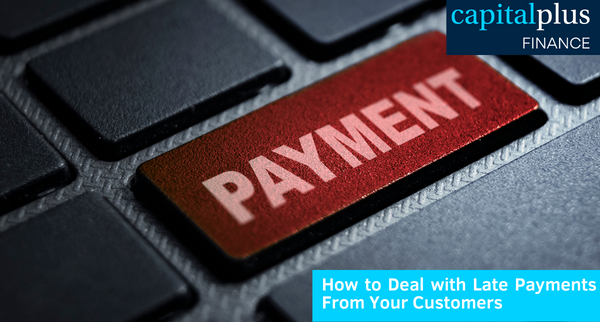Running a small business is not a walk in the park. You put in the work, manage employees, make payments for supplies, think about the future and… collect payments from your customers. Most small business owners are not debt collectors, so it’s frustrating when an otherwise good customer takes their time to pay you for your services. Cash flow is vital for every business, so it’s necessary you have the systems and strategies in place to deal with inevitable late payments from your customers. Sometimes, they won’t pay at all. Avoiding these scenarios and managing customer relations are vital to the longevity of your business.
It also doesn’t help that Australia, in particular, has a culture of late payments. Research indicates most small to medium businesses wait eleven days over their invoice due to receive payment from their customers. Additionally, over 30% of business owners spend at least eight hours a week dealing with the repercussions. Let’s take a look at some proactive strategies to minimise late payments once and for all.
Go digital and automate your invoicing
While you can’t improve your client’s systems, you have full control over yours. The best way to deal with late payments is to prevent them from happening in the first place. A common excuse is that customers don’t know your payment policy. Perhaps it is fifteen days when the normal in your industry is thirty. Clearly state this expectation from the beginning and make it clear on any invoices you send, along with the correct payment receipt details.
If you haven’t already, you need to go digital. Sending invoices manually in the mail or otherwise is a recipe for lost papers, missed payments and problems down the line. Implement an online accounting system that includes e-invoicing. This ensures all invoices and payments are sent and receipted electronically and via email, so there’s no chance of it getting lost, or there being no records to call upon later. You can set automatic reminders that reach out to your customer when their payment is almost due, or already overdue. This saves the time and hassle of manual reminders and often gives the nudge a customer needs to get their late payments sorted.
How to Follow Up with Problem Customers
If an automated reminder isn’t enough, you’ll need to establish what the cause of the issue is. A personalised email is one way to start. Ask the customer if there’s anything you can do to improve their chances of paying this time and in the future. It’s also a good idea to pick up the phone. Have a chat person-to-person and work out a solution; often it’s as simple as negotiating a new due date. If not, there are other solutions to consider, such as charging a late fee or applying interest to the amount overdue. This way, there is an eventual cost for late payment, and they are incentivised to pay on time.
It’s unlikely you’ll need to consult a debt-collection agency, but it is an option if the value is high enough and the customer does not cooperate. Consistently late paying customers are not good for your cash flow. If you can’t solve the problem using these methods, it’s a smart idea to consider alternative solutions or reconsider your business relationship with them.
How debtor finance helps late payments
Debtor finance is a solution to reduce the impact of late payments on your cash flow. Instead of waiting for your customers to pay your outstanding invoices, a debtor finance facility will pay you cash upfront within 24 hours of issue, usually 80% of your unpaid invoice value. When the customer makes their payment, the rest will be released.
Essentially this means you have the cash upfront to pay your staff, suppliers and other costs involved with running your business and fulfilling customer orders. It doesn’t stop customers from paying late, and there are fees, but debtor finance from the right provider does help reduce the impact of late payments on your cash flow significantly.
Finding the right invoice finance provider
When it comes to finding an invoice finance or factoring provider to help deal with late payments from customers, you need to know what to look for. Key points to assess and questions to ask include:
- Do they have a good reputation?
- Do they have quick and efficient digital processes?
- Is the contract transparent and easy to understand?
- How is their customer service?
- Do they understand your business and industry?
If you haven’t dealt with a business funder before, it may be daunting to figure out whether they’re a good fit for you or not. Using the services of a trusted invoice finance broker can be a game-changer as they know exactly what to look for.
Capital Plus Finance is an experienced invoice finance broker with a panel of many debtor finance providers. The Capital Plus Finance team will do everything we can to help you qualify for a suitable solution for late payments from your customers. Please give us a call anytime to find out more or to have an obligation-free chat about your situation.


